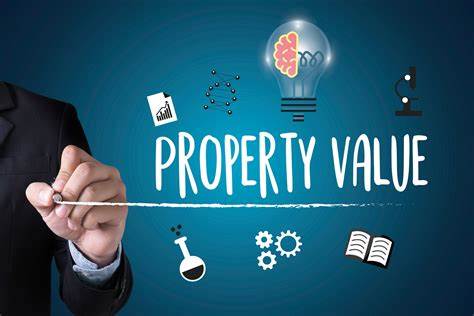
Real Estate Value Appreciation in Smart Buildings: A Game Changer in the Real Estate Market
Introduction
Real estate value appreciation in smart buildings is a concept that has gained significant traction in recent years. As the world becomes increasingly interconnected and technology-driven, the real estate industry has witnessed a paradigm shift towards the adoption of smart building technologies. In this article, we will explore the concept of real estate value appreciation in smart buildings, its relevance and importance, and the potential benefits and impacts it can have on the real estate market.
Historical Background
The evolution of smart buildings in the real estate industry has been a gradual process. From the early adoption and development of smart building technologies to their widespread integration in the market, smart buildings have transformed the way we perceive and interact with our built environment. This evolution has not only impacted the physical structures but has also revolutionized the way real estate is valued and appreciated.
Key Concepts and Definitions
Real estate value appreciation refers to the increase in the value of a property over time. Traditionally, factors such as location, amenities, and market conditions have influenced the appreciation of real estate. However, in the context of smart buildings, additional factors come into play. The integration of technology and automation in smart buildings has opened up new avenues for value appreciation, making it a key consideration for real estate investors and developers.
Smart buildings are defined by their characteristics, which include the integration of technology and automation to enhance the efficiency, functionality, and comfort of the occupants. These buildings leverage advanced systems and sensors to optimize energy consumption, automate processes, and improve overall occupant experience. The benefits of smart buildings in the real estate industry are vast, ranging from energy efficiency and cost savings to enhanced occupant comfort and convenience.
Main Discussion Points
Improved Energy Efficiency is one of the main discussion points when it comes to real estate value appreciation in smart buildings. Smart sensors and controls play a crucial role in monitoring and optimizing energy consumption. By collecting and analyzing data, smart buildings can identify patterns and make real-time adjustments to minimize energy waste. This not only leads to significant energy cost savings but also contributes to the reduction of carbon footprint, making smart buildings environmentally sustainable.
Enhanced Occupant Experience is another key aspect of real estate value appreciation in smart buildings. Smart buildings offer personalized comfort and convenience to their occupants. Through the integration of smart home devices and applications, occupants can control various aspects of their living or working environment, such as temperature, lighting, and security. This level of customization and control improves occupant satisfaction and adds value to the property.
Optimized Operations and Maintenance is an essential factor in real estate value appreciation in smart buildings. Predictive maintenance and asset management systems enable proactive identification of potential issues, allowing for timely interventions. This not only reduces maintenance costs but also improves operational efficiency. The optimization of operations and maintenance in smart buildings translates into higher property value and increased attractiveness for potential investors.
Case Studies or Examples
To further illustrate the impact of real estate value appreciation in smart buildings, let us consider two case studies. The first case study revolves around an office tower that integrated smart building technologies to enhance energy efficiency, occupant comfort, and operational efficiency. As a result, the property’s value appreciated significantly, attracting high-profile tenants and increasing its market demand.
The second case study focuses on a residential complex where smart building technologies were implemented to provide residents with a seamless and personalized living experience. The integration of smart home devices and applications allowed residents to control various aspects of their homes, leading to increased satisfaction and ultimately, higher property value.
Current Trends or Developments
Current trends in real estate value appreciation in smart buildings revolve around the adoption of Internet of Things (IoT) technologies. IoT enables seamless connectivity and communication between various devices and systems within a smart building, enhancing its overall functionality and efficiency. Additionally, the integration of artificial intelligence and machine learning further optimizes the performance of smart buildings, making them more intelligent and adaptive.
Challenges or Controversies
While the benefits of real estate value appreciation in smart buildings are substantial, there are challenges and controversies that need to be addressed. Privacy and security concerns in smart buildings have gained attention due to the extensive collection of data and potential vulnerabilities in the interconnected systems. Additionally, high upfront costs and return on investment challenges pose barriers to the widespread adoption of smart building technologies. Resistance to change and lack of awareness also hinder the realization of the full potential of real estate value appreciation in smart buildings.
Future Outlook
The future outlook for real estate value appreciation in smart buildings is optimistic. With the continuous growth of technology and innovation, smart buildings are expected to play a significant role in shaping the future of the real estate market. Integration with smart cities and urban planning will further enhance the value and attractiveness of smart buildings. Emerging technologies, such as blockchain and virtual reality, are also expected to revolutionize the way real estate is valued and appreciated.
Conclusion
Real estate value appreciation in smart buildings is a game changer in the real estate market. By leveraging technology and automation, smart buildings offer improved energy efficiency, enhanced occupant experience, and optimized operations and maintenance. These factors contribute to the appreciation of real estate value, making smart buildings an attractive investment option. As the industry continues to evolve, it is essential to conduct further research and implementation to fully unlock the potential of real estate value appreciation in smart buildings.